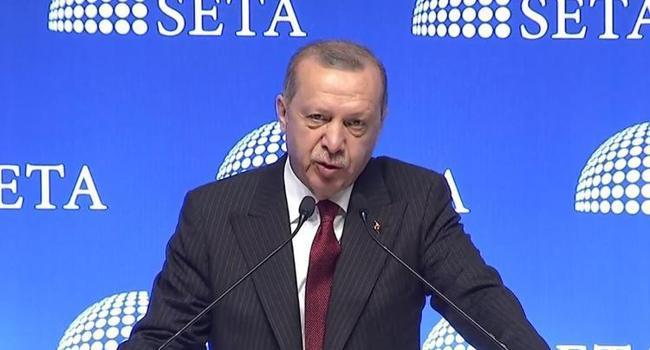US sanctions hurting its own reputation, Turkish FM says after meeting Russia's Lavrov
ANKARA

Sanctions imposed by the United States on Turkey are shattering the U.S.’ reputation, warned Turkey’s Foreign Minister Mevlüt Çavuşoğlu on Aug. 14.
“The era of bullying must end,” Çavuşoğlu said during a joint press conference with his Russian counterpart Sergei Lavrov at the 10th Ambassadors’ Conference in the capital Ankara.
"If the U.S. wants to continue being a reputable country, it cannot do so with these impositions," he said, referring to the sanctions.
"We are against the U.S. or any country imposing sanctions," he added.
For his part, Lavrov said that the U.S.’ "unlawful and illegitimate" sanctions policy cannot last for long.
Turkey and the U.S. are currently experiencing rocky relations following Washington’s imposition of sanctions on two government ministers for not releasing American Pastor Andrew Brunson, who faces terrorism-related charges in Turkey.
President Donald Trump on Aug. 10 doubled U.S. tariffs on Turkish aluminum and steel imports.
The five-day ambassadors’ conference is hosting 249 Turkish ambassadors and two charge d'affaires, as well as a number of foreign diplomats.
Lavrov pledges support to Syrian army’s Idlib offensive despite Ankara’s concerns
Meanwhile, Russia has pledged open support to the Syrian army’s probable operation into the rebel-held Idlib province despite Ankara’s concerns that such a massive offensive would only lead to a “massacre” in a heavily civilian-populated enclave in northwestern Syria.
“It’s the right of the Syrian army to intervene against [terrorist] moves there. They are moving in their own lands and protecting their independence. Their actions do comply with the 2254 resolution of the U.N. [United Nations] Security Council. And it’s our right to lend support to the Syrian army,” Russian Foreign Minister Sergei Lavrov told a joint press conference with Foreign Minister Mevlüt Çavuşoğlu on Aug. 14 in Ankara.
The two ministers exchanged views on a number of bilateral and regional issues, including recent developments in Syria in the light of Damascus’ preparations for a military operation into Idlib. The province was designated as a de-escalation zone in which the Turkish army had built 12 observation posts in line with a three-way agreement with Russia and Iran in Astana.
There are more than 2.5 million living in the enclave, which has been under the control of jihadist groups that have been transferred from Aleppo, East Ghouta and Homs in the recent years. Jebhat al-Nusra is believed to be the most powerful jihadist group in the region with thousands of heavily armed terrorists.
The Syrian army has begun military deployment around Idlib with reports that the offensive would begin in September.
On a question about an upcoming Idlib operation, Lavrov recalled the Astana Agreement between the three countries excluded cease-fire with terrorists.
“The situation in Idlib is complicated. According to U.N. figures, there are thousands of armed militants in the area,” he said, informing about assaults against the Syrian army and Russian military bases mainly from Jebhat al-Nusra groups.
“The Syrian army has the right to struggle against such moves,” said Lavrov.
Çavuşoğlu: Let’s distinguish opposition groups from terrorists
Çavuşoğlu, however, expressed Ankara’s concerns that a massive operation into Idlib would create only a massacre and chaos if civilians and opposition groups are not distinguished from terrorists.
“What we should do is very simple. Our intelligence and military officials from guarantor countries should work together to identify who are terrorists and who are not and only after that we should eliminate terrorists,” the minister stressed.
Çavuşoğlu recalled around three million people were living in the region and bombing all of Idlib would cause tragedy and crisis.
Lavrov: Conditions exist for the return of Syrian refugees
One of the objectives of ongoing efforts was to let millions of Syrian refugees in Turkey, Lebanon and Jordan return to their homeland as stability and peace is provided in the war-torn country, Lavrov said.
However, he expressed disappointment with a recent statement of the U.N. High Commissioner for Refugees that conditions in Syria were unsuitable for the return of refugees.
“I am surprised with this statement,” he said and added the conditions were there for them to begin returning home.
He also accused Western countries of trying to describe the Astana process as an “unsuccessful setting.”
“I hope that we, as guarantors, will be able to resolve the Idlib issue,” Çavuşoğlu added.
Turkey to boycott US electronic products, President Erdoğan says


















